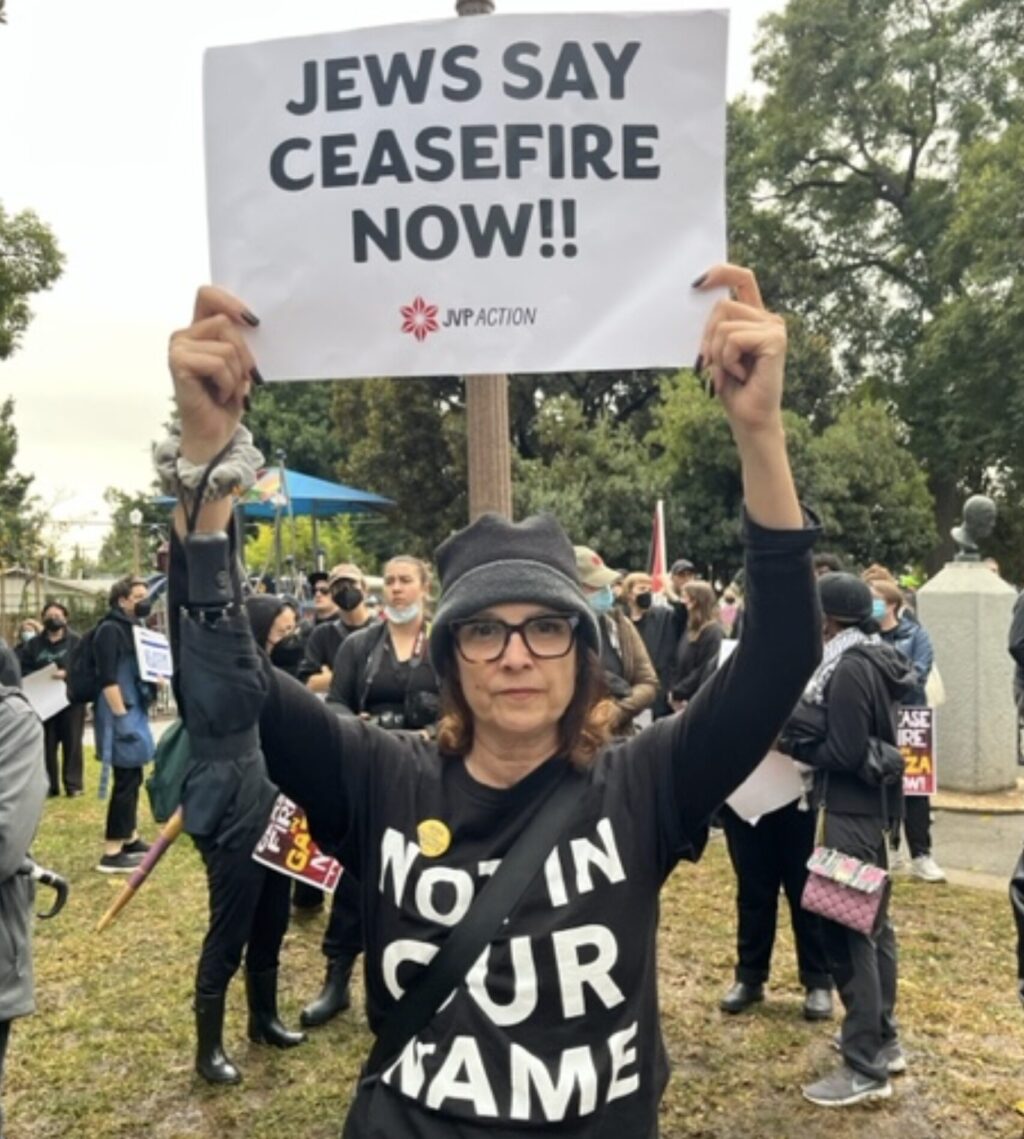Letter: An Alternate Jewish Voice. A Letter of Support for the Amherst Ceasefire Resolution

Photo: Marcy Winograd /Flckr.com (Public Domain)
by Thomas Weiner and Jeff Gold
We are writing this letter of support for the ceasefire resolution which the Town Council of Amherst will be considering on Monday March 4, because it is necessary and moral to do so.
We find it profoundly painful to fundamentally disagree with our Jewish brothers and sisters from the Western Massachusetts Jewish Federation on several points. These conversations, both within and external to the Jewish community, are fraught. They threaten to fracture Jewish communities. And yet, if we cannot engage in such discourse, we are even worse off. Despite how they might disagree, we view our support of the ceasefire resolution as deeply embedded in the Jewish values of universalism, which honors our own liberation narrative that insists on justice for all, and the mandate to acknowledge the “Other.” Under the current circumstances, we refuse participation in any form of dehumanization.
It is indeed a sad commentary that calling for a ceasefire – demanding an end to the killing, violence and humanitarian catastrophe which is occurring in Gaza – has become politicized. Approximately 70 other towns and cities in this country have already called for a ceasefire. Yet that call to end violence and return all hostages and detainees is somehow instead interpreted by the Federation as a provocation to incite violence against Jews and Muslims in this country. That makes absolutely no sense to us. Demanding a ceasefire is transparently and directly that – calling for an immediate end to the humanitarian catastrophe which has become Gaza.
To those who argue that this is a largely symbolic action, and therefore it is useless or not worth putting such a resolution before the Town Council, you are only in part right. It is largely symbolic. But there is nothing wrong with an action that is symbolic, and which sends a message to our political leaders about our desire to end this violence and humanitarian disaster. It also conveys a message that what is being supported by our government is not being done in the name of our community.
The larger questions for those of us who are Jewish, are the questions of holding multiple, conflicting and legitimate truths simultaneously in these difficult and polarizing times. We can denounce the violence that Hamas committed on October 7 especially the atrocities which occurred against women and children. And we can as well denounce the continuing asymmetrical violence perpetrated by the Israeli government and military against the people of Gaza, resulting in estimates of 29,000 deaths, and most of the population displaced and dispossessed. That is unconscionable. In addition, 10,000 of the dead are estimated to be Hamas fighters and there are an estimated 20-30,000 still fighting. When will the carnage end without a ceasefire? Even some Israeli government officials admit that eradicating Hamas is impossible.
If the October 7 attacks by Hamas shattered a sense of security and safety for Israeli and Diaspora Jews (though dissimilarly), we also have to acknowledge that the occupation, fanaticism, and violence of West Bank settlers and their ideology causes Palestinians to live under constant fear. If chants of “From the River to the Sea” evoke fears of Holocaust trauma for many Jews, then we also need to acknowledge similar trauma-induced effects on Palestinians by the Likud Party Platform which says, “between the Sea and the Jordan there will only be Israeli sovereignty.” These are all part of the same relational dynamic in which tribalism, trauma and victimhood predominate.
We Jews are not the only ones experiencing an existential threat.
Israeli and Diaspora Jews want and need to feel safe. So do Palestinians in Gaza, Israel , the occupied West Bank, and in their Diaspora. Intermittent wars and terroristic violence -committed by both sides – which have occurred for 75 or more years, have not brought the self-determination, safety and security that both peoples deeply desire and want. Most significantly, Netanyahu’s goal of destroying Hamas is only leading to its growing popularity and increasing recruits, so the notion of not supporting a ceasefire to enable Hamas’ destruction is a fallacy.
Discourse has no chance when a humanitarian catastrophe is occurring. A ceasefire will start the process of saving lives. That in and of itself is worth demanding. When the horrid dust settles from this latest violence, we will still be left with the need for a different, nuanced discussion: a discussion that recognizes these and other legitimate yet conflicting truths, like the Holocaust and the Nakba, that acknowledges the pain and fears of both peoples with mutual compassion, and is based on equality, democracy and justice.
Thomas Weiner and Jeff Gold
Thomas Weiner is a resident of Northampton.
Jeff Gold is a resident of Pelham.
